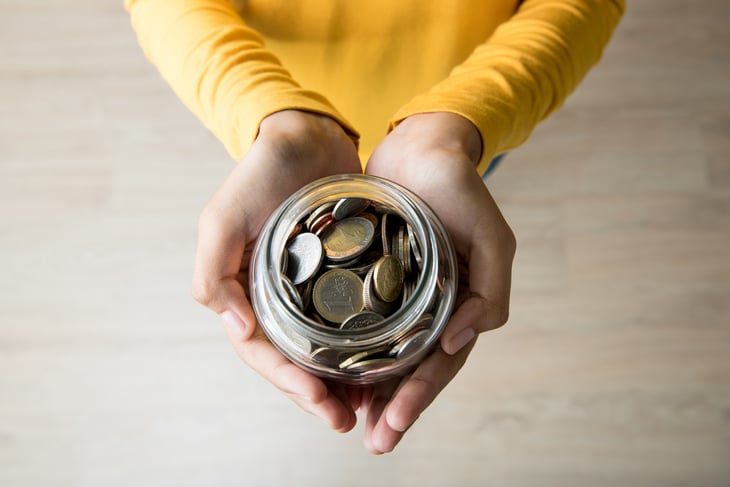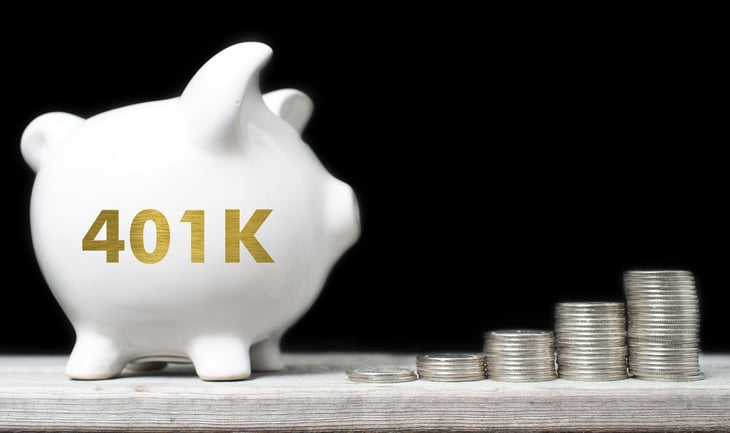
In life, nothing is guaranteed. That’s especially true of our finances. Our jobs aren’t a sure bet. And major, unexpected expenses can arise at any time — what if there’s a recession?
That means a healthy emergency fund is a must. Following are a few creative ways to build an emergency fund on a shoestring budget.
Once you’ve kick-started yours, check out “The 3 Best Places to Keep Your Emergency Fund.”
1. Set a goal

Setting clear and realistic goals is the first step to achieving great things. Use your total monthly net take-home pay to create a reasonable savings goal. Visualize reaching your goal and track progress along the way.
Start slow, stay steady and watch your stash of cash grow bit by bit. Avoid the temptation to dip into the fund for any reason except legitimate emergencies. You’ll be surprised how having this little self-made insurance policy gives you extra peace of mind.
2. Put the word out

Let friends and family know that you’re working toward a financial goal. This helps develop a community of support.
There is no need to divulge your deepest financial secrets — just communicate that you hope to save by skipping a few lunches out or brewing your own morning coffee.
Success is contagious, so don’t be afraid to share how well things are going. You might inspire others.
3. Spare some change

Although it may sound like a painfully slow and quaint strategy, our parents and grandparents knew the power of saving a dime at a time. Start a new habit of paying for everyday purchases exclusively with cash, pocketing the change.
Funnel all that spare change into a jar, and let your savings grow the old-fashioned way.
4. Start a part-time gig

If you have skills that can be marketed in a freelance capacity, consider launching a part-time business to partially fund your emergency account. Or perhaps an evening or weekend job can give you a quick leg up on savings.
Don’t lose sight of the goal: Pocket what you make, and keep your lifestyle low-key.
5. Sell the excess

Take a moment to look around: Are you sitting in a home or office filled with excess stuff?
Stick mental price tags on all those old clothes, unused electronics, dusty video games and idle bicycles. Sell them on eBay, post on Craigslist, host a yard sale or work with a local consignment shop to turn clutter into cash. Devote your windfall to your emergency fund.
For more tips, check out “Don’t Toss These 7 Household Items — Sell Them.”
6. Rethink your 401(k)

Temporarily reduce your 401(k) contributions to the lowest amount that will still allow you to take advantage of company matching funds. Direct the extra cash to your emergency fund.
7. Save the raise

If you’re lucky enough to receive a cost-of-living pay increase or a one-time bonus for a job well-done, consider adding the extra cash to your emergency fund.
8. Fund with your refund

Those yearly tax refunds feel great, but having too much withheld from your paycheck means you’re providing the government with an interest-free loan throughout the year.
This isn’t the best financial strategy. But if you’re committed to it, at least make sure to make the most of your tax refund. Instead of planning a weekend shopping spree, put the money to work by socking it away in an interest-bearing account for emergency use.
To find a great account, stop by our Solutions Center and search for the best rates banks are offering.
9. Double-time that overtime

If your job has opportunities for overtime, use them strategically to build your emergency fund. Keep track of your overtime hours and transfer that amount into a savings or money market account each pay period. When you hit your goal, phase out the overtime, or set your sights on the next financial target.
Building an emergency fund from scratch takes perseverance and discipline. But it doesn’t have to be drudgery. As with any focused project, you’ll be surprised how energizing small successes can be.
Before you know it, you’ll have an emergency fund that will help you sleep at night. Who can put a price on that?





Add a Comment
Our Policy: We welcome relevant and respectful comments in order to foster healthy and informative discussions. All other comments may be removed. Comments with links are automatically held for moderation.